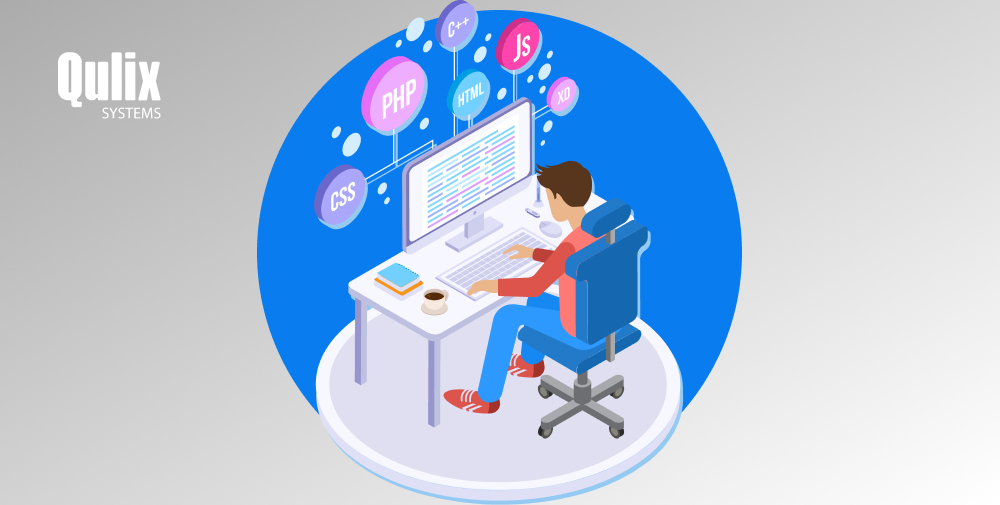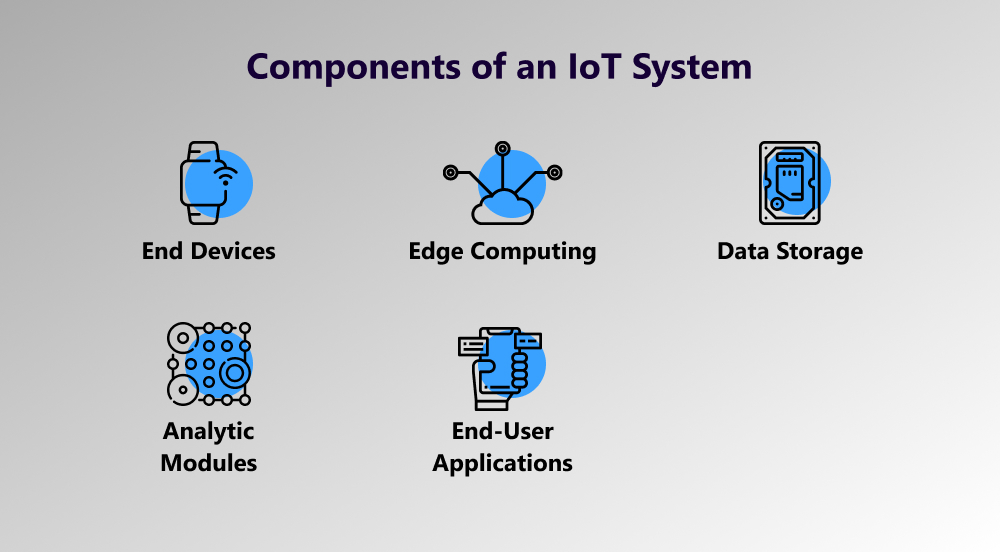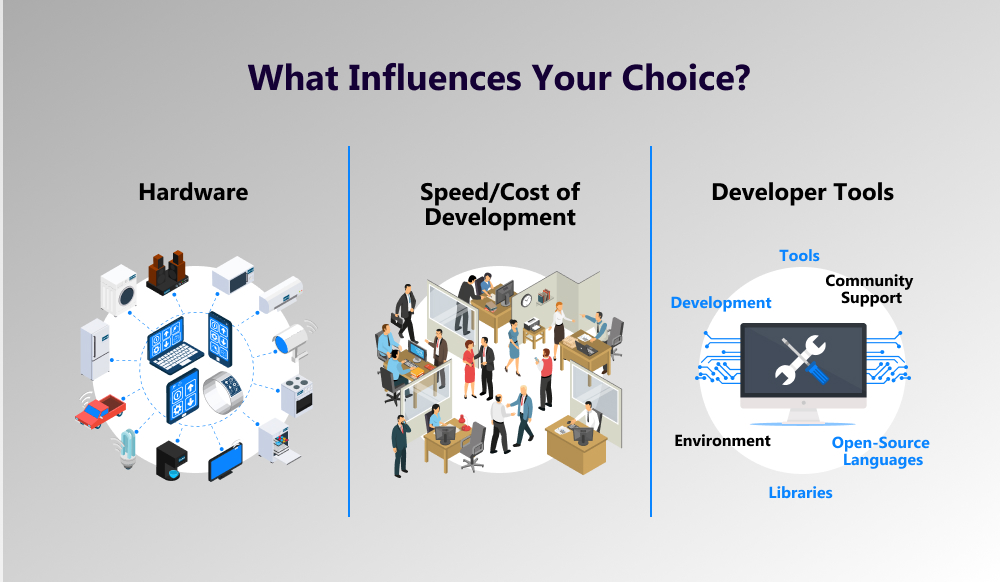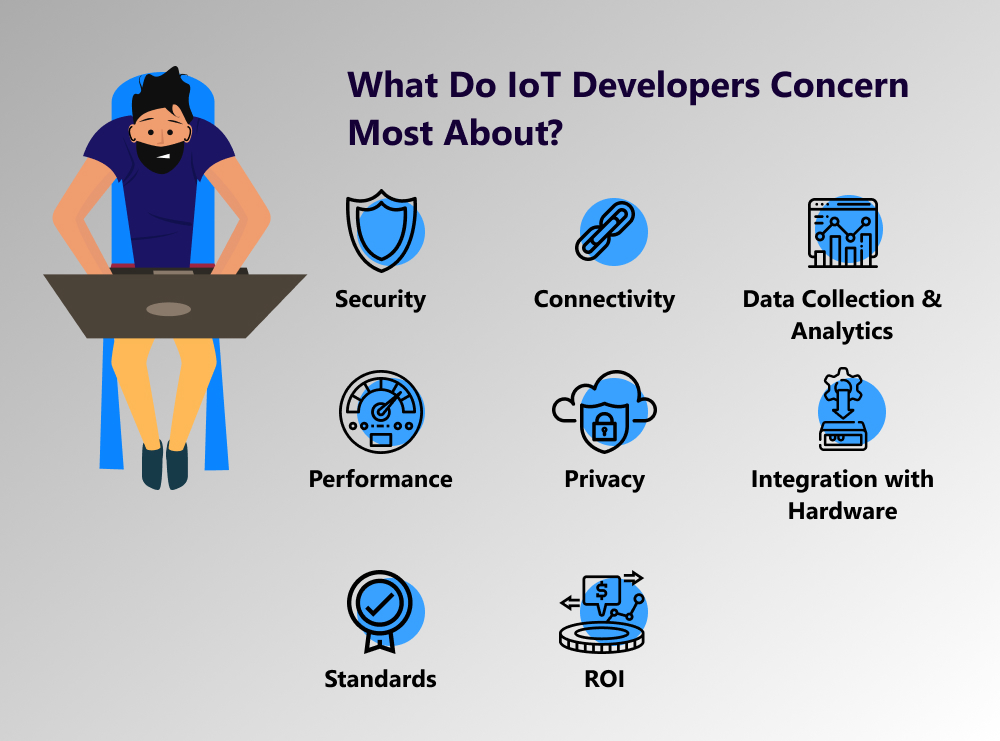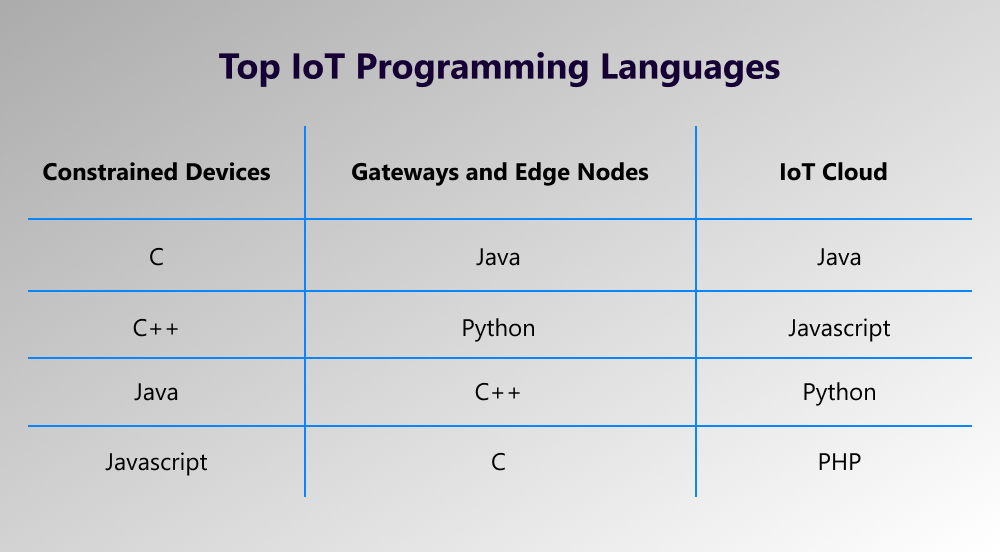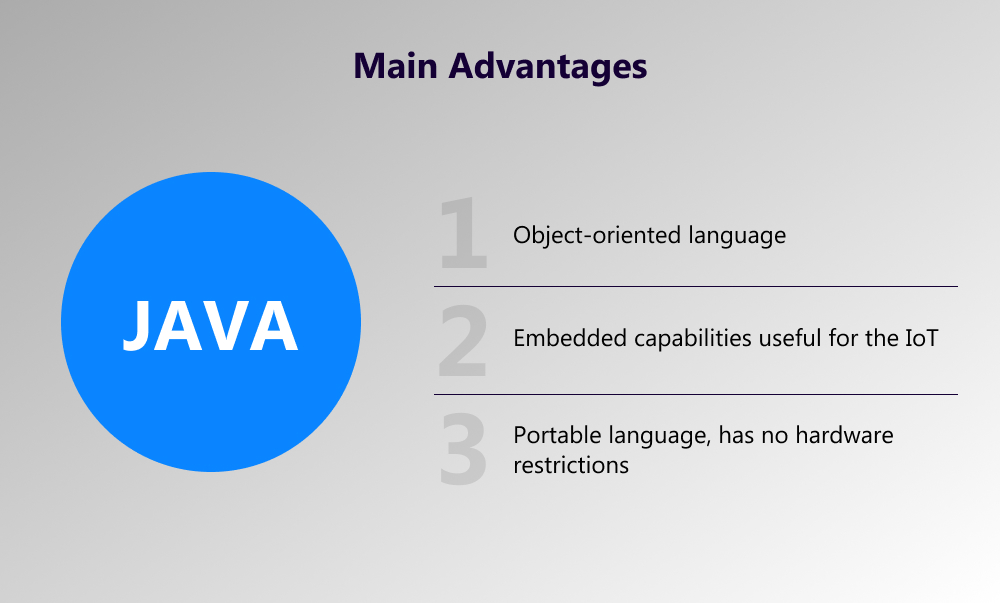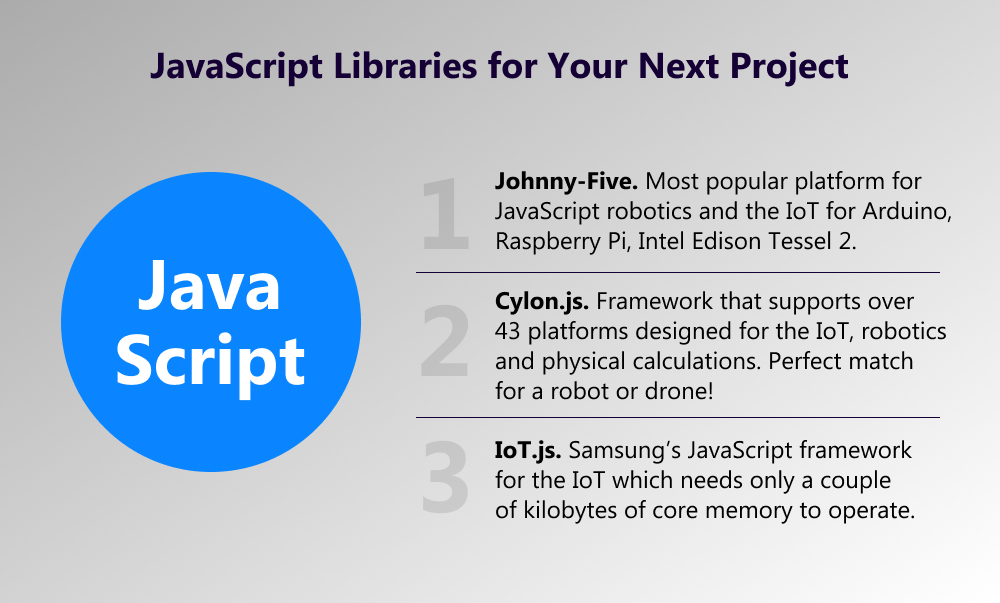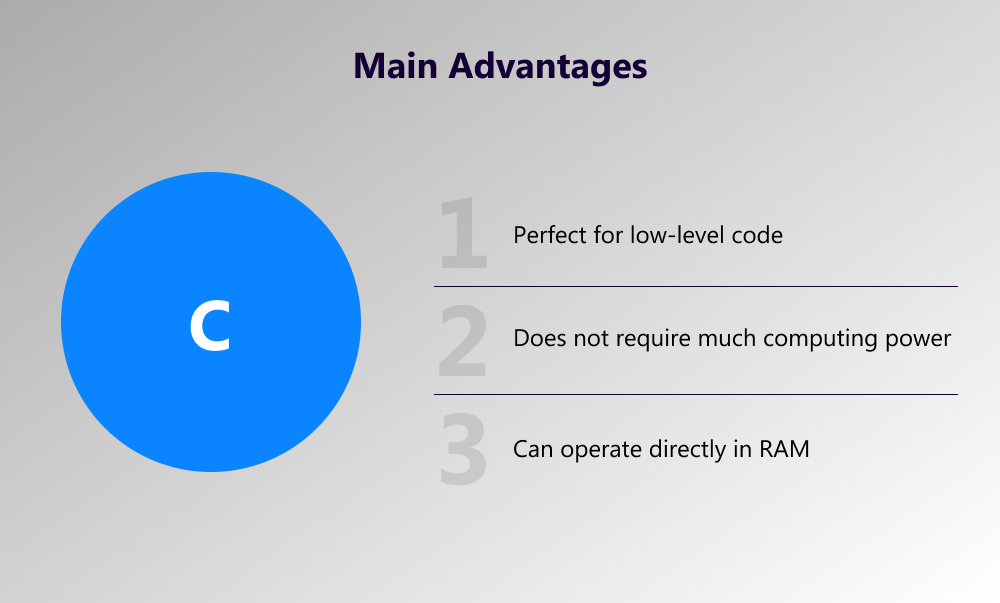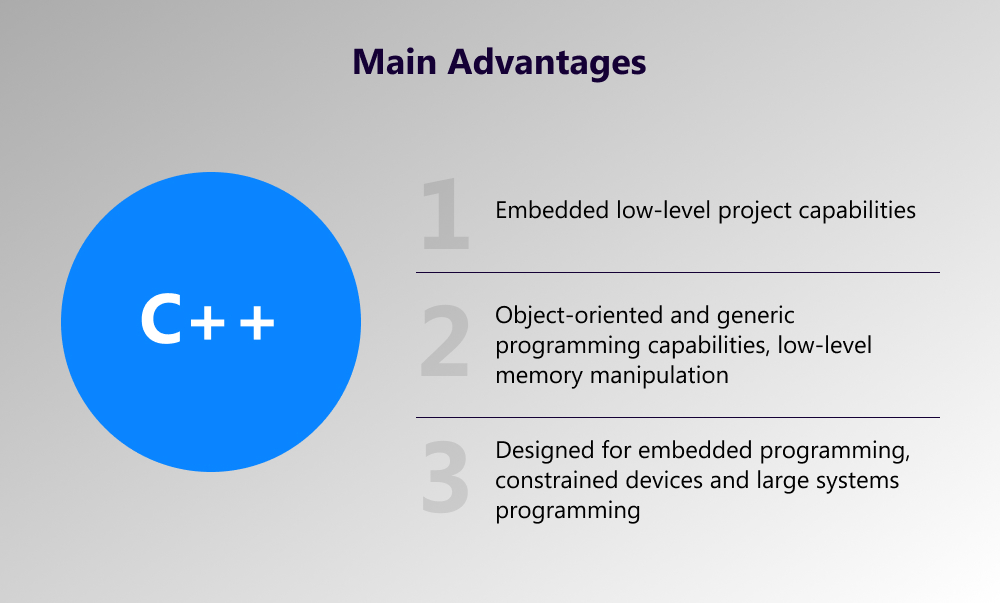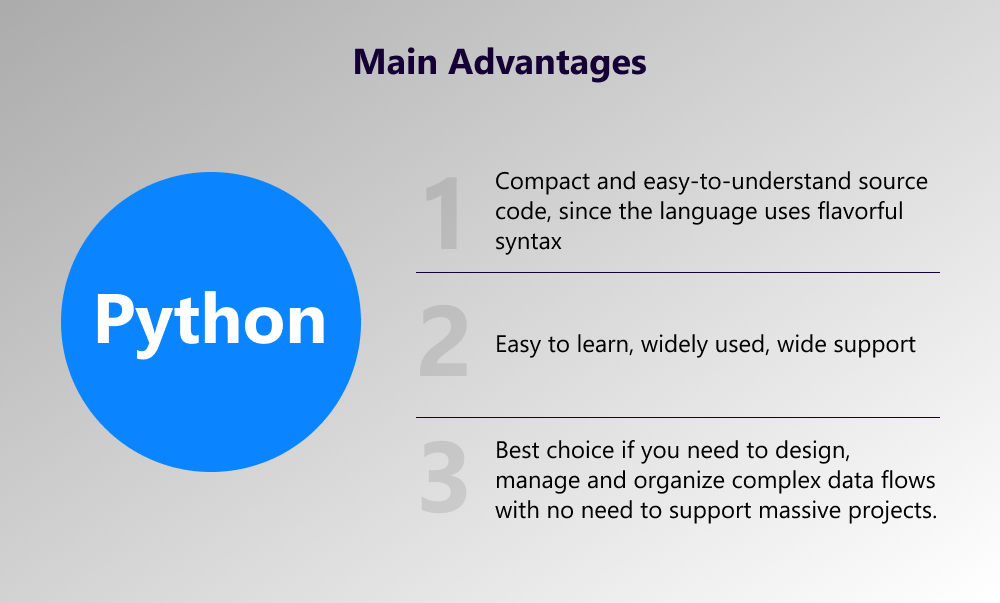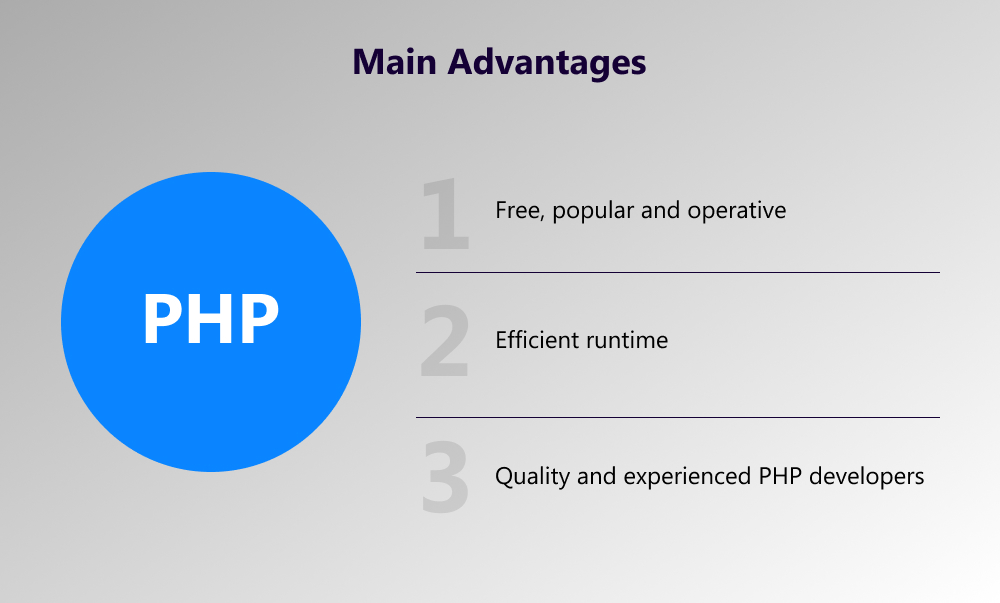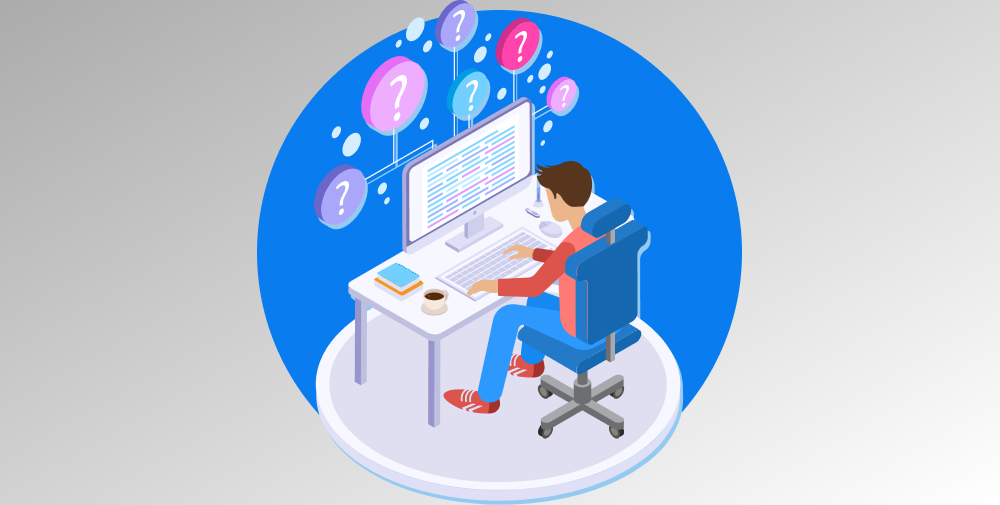The Internet of Things may be a relatively new field for solution providers, but programming languages remain the same. Which factors influence your choice? What languages are the most popular ones for IoT developers? What are their advantages in relation to others? Let’s try to find some answers together.
written by:
Anastasia Borodinets
The Internet of Things may be a relatively new field for solution providers, but programming languages remain the same. Which factors influence your choice? What languages are the most popular ones for IoT developers? What are their advantages in relation to others? Let’s try to find some answers together.
Selecting the best tech stack is way far from being an easy task. Especially when we talk about the all expanding Internet of Things, with all its multiple components, smart devices, connectivity, and languages.
Each component is characterized by its own peculiar characteristics which determine developers’ choice of an IoT programming language they are going to code in.
Why So Concerned?
Before we proceed further, let us say that your choice is always predetermined by many factors observed in your exact business case. Nevertheless, there are some basic things that you’ll most likely take into account just like others do.
Hardware
Well, it’s pretty obvious that your IoT devices play the utmost role when you need to narrow down the wide range of languages you may code in. Let’s say, you have low-power tiny devices that are able to operate on a very compact script. Here is when С and C++ come to help since these low-level siblings feel good in the environment of memory constraints. In addition, the same applies to computing power since the less power you’ve got, the more optimized your code must be.
Speed/Cost of Development
Speed and cost are in most cases on the opposite ends of the scales. You may need to present your investors with a minimum viable product, which requires speeding up the development process at the same time. So in this case complex languages (С or C++) are not the best option. Choose more flexible ones instead to reduce time and effort. The same is true when you need to proceed to test your project ASAP. Ease of use and versatility will be key factors here.
On the contrary, if you need speed, you shouldn’t ignore the fact that it requires the corresponding hardware power, and you cannot run the code and tests on cheap and unreliable equipment. So meet this trade-off wisely.
Developer Tools
Last but not least is the availability of tools in the development community. A developer’s life can be made much easier if the language they choose has plenty of tools, libraries, a well-organized development environment, and strong community support. In this regard, open-source languages are a step ahead of their competitors.
In addition to that, there is an array of concerns that a responsible developer should consider before proceeding with this or that language.
Welcome to the Top!
Languages are not born equal, and there is no universal one that would fit perfectly for any purpose of development. Below is a brief breakdown by the area of application based on the recent survey by Eclipse Foundation.
As we can see from the table above, C is preferable for constrained devices, i.e. control units and hardware with limited computational power and RAM. Java is the best choice for edge/gateway and for cloud applications.
Below we’ll go through these top programming languages for the IoT.
Java
Java is widely used in the programming world. The Java Virtual Machine (JVM) allows writing a code that will be supported by any board. Thus, the software you create with Java will run anywhere the JVM is regular — from smartphones to servers which makes the language a perfect fit for IoT software in terms of versatility. Still, it normally requires more power resources since it has the tendency to be heavy.
JavaScript
For those of you who are ardent followers of anything Java-like, we’ve got some good news: Pi, Arduino, or custom Bluetooth and WiFi boards can pretty well connect via Node.js. The language is commonly found in web apps and websites, which enables web developers to proceed onward without having to learn another language.
To help you build your own evil robomind or smart toaster, there are a couple of useful libraries for your next project.
С
Computing power is normally limited at the hardware level. Here’s when the С language works well. Basically, it is the only option for Arduino projects, but can also be used for other platforms.
Moreover, С can be used to write code for microcontrollers, which makes it indispensable for hardware apps for sensors and gateways. But since it is a low-level programming language, its syntax may soon become bulky and chaotic if developers fall short of best practices.
C++
When we deal with single-board computers like Raspberry Pi, then your knowledge of C++ may come in handy for creating user-friendly wrapping and subsequent gathering and processing of data received from connected devices and its transfer to the server. Of course, the same task can be performed in another programming language or on another end-access device but it will hardly be simpler or faster.
Speaking about the IoT, you must know how to set up certain components starting from scratch: memory access, package integrity check, internal arbitration mechanism, and similar simple operations. C++ includes a wide range of ready-to-use libraries that will help you solve various tasks. It is a better alternative if your tasks are more complex in case you need to connect a smart microwave rather than a moisture detector.
Python
The language started its career as a high-level script language. It covers a bunch of useful libraries, and you can do more work with it using fewer code lines. Python is ideal for the analytical part of operations with information in IoT systems.
This programming language is very popular in simple modular projects and startups, where computational demand ranges from the minimum to middle levels. For example, there are even its tiny forms like the MicroPython board represented by a couple of square inches and a programming hub.
PHP
If you consider PHP, most probably you are looking for site models and web journals rather than the IoT. However, this is a true fact that thousands of developers are incorporating the PHP code since new versions of this programming language are now free from issues of their predecessors.
At the moment, major frameworks are Symfony and Laravel.
Internet of Things and Its Language Future
Today we have a skin device that can track the blood sugar level and send this information via a mobile app to the doctor. Soon enough, this smart device will be able to travel through arteries and take away cholesterin.
As the scope of IoT applications is expanding, more and more data will be created during its operation, thus enabling us to better understand which IoT programming languages suit perfectly for a specific scenario. Till then, the development will mainly remain multilingual.
To cut to the chase, the choice is yours!
Contact us to get more info and updates on the Internet of Things and our programming expertise. Our support team is always eager to discuss new projects.

Contacts
Feel free to get in touch with us! Use this contact form for an ASAP response.
Call us at +44 151 528 8015
E-mail us at request@qulix.com

